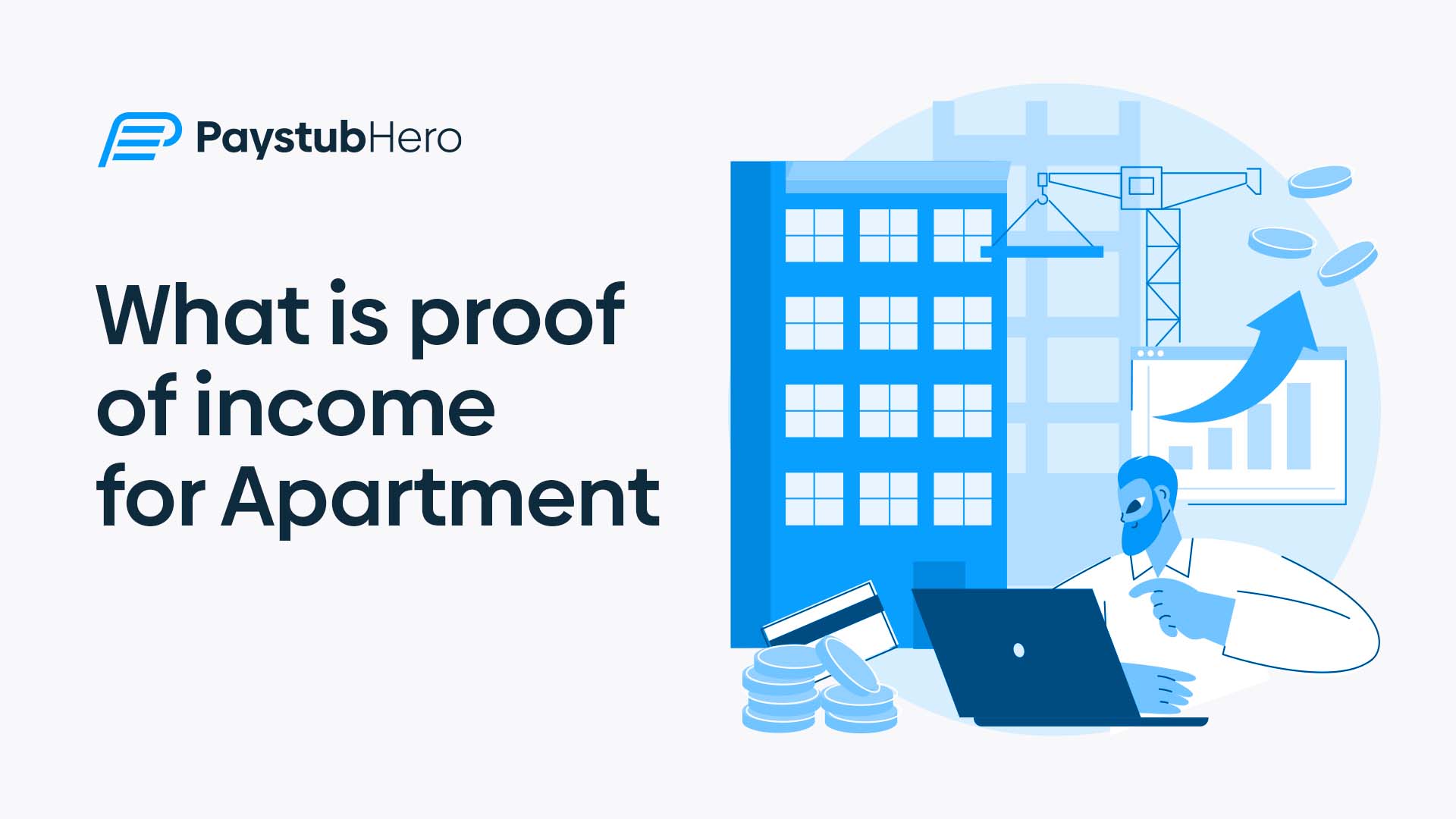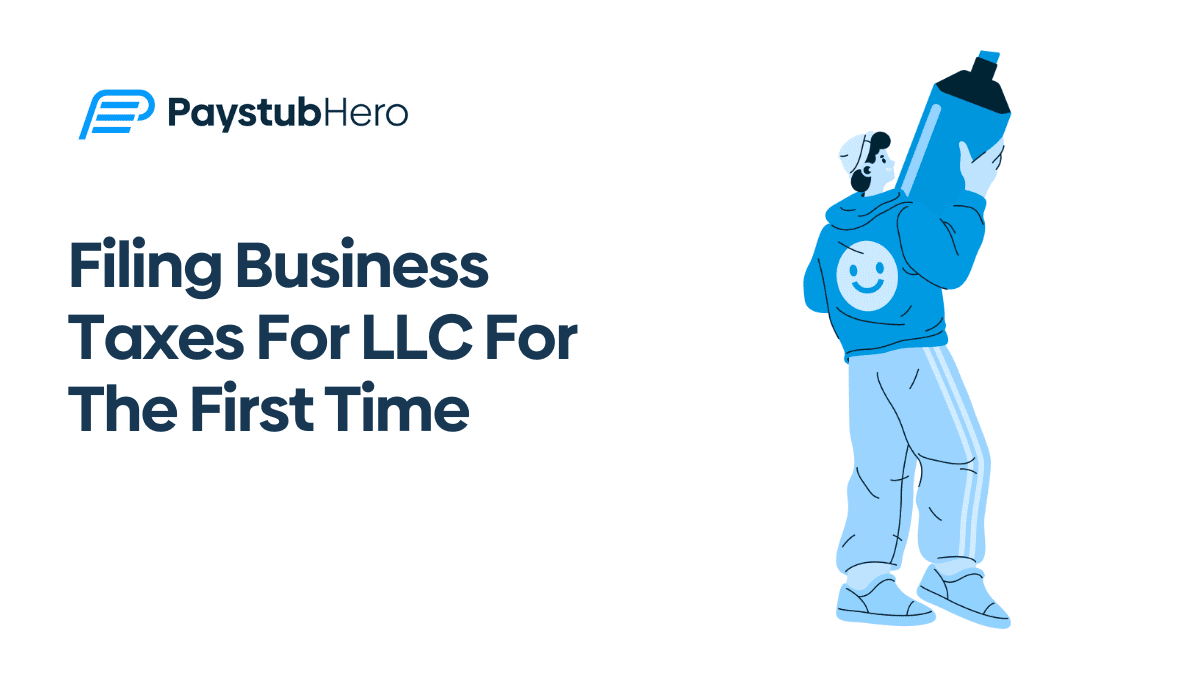Looking for a new apartment? You might be wondering, “What is proof of income for an apartment?” Moving to a new apartment is a significant milestone in one’s life. It’s a chance to experience a new environment, meet new neighbors, and create fresh memories. But the process of securing that ideal space is not without its challenges.
In fact, one of the most common hurdles in the rental application process is proof of income. But what does this term truly mean, and why is it such an integral part of your apartment search?
Proof of income for an apartment is a verification that a potential tenant earns enough to comfortably cover the cost of rent. It’s a pivotal factor that property managers and landlords consider before deciding if an applicant is a viable candidate for tenancy.
Consider this scenario: You’ve finally found the perfect apartment — it’s in a desirable location, has ample space, modern amenities, and falls within your budget. But the property manager or landlord asks for your proof of income.
You’re left pondering, “What exactly is that? What documents do I need to provide? What if I’m self-employed or an entrepreneur?”
To successfully navigate the rental application process, you must understand the concept of proof of income, its importance, and how to present it appropriately. In the subsequent sections, we’ll delve deeper into these aspects, equipping you with the knowledge to confidently secure your next apartment.
Table of Contents
- Introduction
- Unpacking the Essentials: Understanding the Concept of Proof of Income
- The Bigger Picture: The Importance of Verification of Rent
- Paving New Paths: Unconventional Proof of Income
- Embracing Simplicity: A Streamlined Solution with Paystubhero
Unpacking the Essentials: Understanding the Concept of Proof of Income
Proof of income is more than just a term; it’s your financial passport in the world of property rental.
But before you start the journey, it’s crucial to understand what this concept entails. Proof of income serves as an assurance to landlords or property managers that you have a reliable income stream. It’s a testament to your financial health and stability.
But how is it reflected? What documents bear the mark of this assurance?
Proof of income typically comes in the form of tangible documents that verify your earnings.
For the conventional employee, these are generally recent pay stubs, a W-2 form, or a letter from the employer. These documents provide a clear picture of your earnings and demonstrate your ability to afford the rent.
However, not everyone fits into the typical 9-5 employment structure. If you’re self-employed or a freelancer, your proof of income might come in different forms.
This could be a tax return showing your annual income, bank statements illustrating consistent cash flow, or a proof of income letter from a certified public accountant or an attorney.
Remember, the central premise here is not just about having income, but consistent income that comfortably exceeds your prospective rent.
Most landlords and property managers follow a general rule of thumb where your monthly income should be about 2.5 to 3 times the monthly rent. This requirement helps ensure that you can manage the rent payment along with other living expenses.
Now that you understand what proof of income is and what it looks like let’s explore its significance and other related elements in the rental application process.
The Bigger Picture: The Importance of Verification of Rent
While understanding proof of income is vital, another key piece of your rental application is the verification of rent. It’s as if proof of income is the trailer of a movie, while verification of rent is a rave review from a critic. Together, they create a compelling case for why you’re an ideal tenant.
So what exactly is verification of rent?
Verification of rent, or VOR, provides concrete evidence of your track record as a tenant who consistently pays rent on time. Think of it as a report card from your previous landlords, showcasing your reliability and responsibility as a tenant.
This proof could come in the form of a letter from a past landlord or property manager or bank statements that demonstrate a history of regular rent payments. In some cases, a signed lease agreement with a history of received rent checks can also suffice.
By providing verification of rent, you’re showing prospective landlords that not only do you have the financial capacity to pay rent – as demonstrated by your proof of income – but you also have a history of doing so punctually. This double assurance significantly enhances your appeal as a tenant.
In essence, just as your credit history reflects your financial reliability to lenders, your rental history paints a picture of your reliability as a tenant.
This history, combined with solid proof of income, can tip the scale in your favor when landlords are deciding between potential tenants.
Now that we’ve explored the conventional methods of showcasing your financial capability, let’s delve into how those with non-traditional income sources can meet these crucial requirements.
Paving New Paths: Unconventional Proof of Income
As the workforce evolves, the traditional 9-5 employment model is no longer the only way to earn a living. A growing number of individuals are carving their own paths as entrepreneurs, freelancers, or independent contractors. This shift in the professional landscape necessitates different methods of demonstrating proof of income.
If you’re part of this increasingly prevalent group, the traditional forms of income verification, such as pay stubs or a W-2 form, may not apply to you. Instead, you may need to present unconventional forms of proof of income that reflect your unique earning situation.
One of the most popular alternatives is a proof of income letter, also known as an income verification letter.
This document, often written by a CPA, lawyer, or even by you, the self-employed individual, explains your work situation and income. It might include details about your business, your clients, your average monthly or annual income, and the stability of your income.
For freelancers and independent contractors, tax returns are another common form of income proof. They provide a year-to-year snapshot of your earnings, which can be particularly helpful if your income fluctuates throughout the year. Bank statements can also serve as proof of income by showing consistent cash flow from your professional endeavors.
It’s worth noting that some landlords might be hesitant to accept these unconventional forms of income proof due to unfamiliarity or perceived instability in self-employment income. However, as more people transition into freelance and self-employment roles, these documents are becoming increasingly accepted.
Remember, the goal is the same, irrespective of your employment status: to prove to landlords or property managers that you have a reliable income stream that can comfortably cover your rental payments.
Understanding and effectively presenting your proof of income – conventional or otherwise – is a critical step towards securing your dream apartment.
Embracing Simplicity: A Streamlined Solution with Paystubhero
In an age where technology is simplifying our lives in numerous ways, why should proving your income be any different?
Whether you’re an entrepreneur navigating the initial stages of your start-up, a freelancer juggling multiple projects, or a small business owner managing an expanding team, there’s a solution to your proof of income needs – Paystubhero.
Traditional payroll software often targets large corporations, leaving individuals and small businesses struggling with high costs and unnecessary complexity. Paystubhero emerged as a response to this gap in the market, offering a robust yet simplified solution tailored to the unique needs of solo-entrepreneurs and small businesses.
With Paystubhero, generating your proof of income is as easy as 1-2-3. All you need to do is enter your company/employee info into our platform. Our intuitive software handles the calculations, producing a clear, professional paystub that you can use as proof of income.
We understand that time is a precious commodity, especially when you’re running a business or managing freelance work. That’s why we’ve designed Paystubhero to be efficient, getting you the documents you need without the wait or hassle.
Plus, with our affordability, we’ve made sure that access to high-quality payroll software isn’t just a privilege of big businesses.
But the benefits of Paystubhero don’t stop at simplicity and speed. Our platform also offers a level of reliability and accuracy that manual calculations can’t guarantee. With our system, you can be confident that your paystubs reflect your earnings accurately, helping you present a compelling case to your prospective landlord.
By choosing Paystubhero, you’re embracing a streamlined approach to income verification. We’re committed to helping you turn your attention away from payroll paperwork and back to where it’s needed most – be it growing your business, serving your clients, or finding the perfect apartment.
With Paystubhero, navigating the world of income proof becomes a breeze.
Frequent Asked Questions
- What is an income statement for an apartment?
- An income statement for an apartment refers to a document that proves a potential tenant’s consistent and sufficient income. This could be a pay stub, a tax return, or an income verification letter.
- Do bank statements count as proof of income?
- Yes, bank statements can count as proof of income. They show your consistent cash flow and can be particularly useful for self-employed individuals, freelancers, and entrepreneurs.
- What can I black out on my pay stub for an apartment?
- You can usually black out sensitive information like your social security number and bank account details. However, make sure to keep visible the portions showing your name, income, and the date of the pay period.
- How do apartments verify income?
- Apartments verify income by reviewing provided documents like pay stubs, tax returns, or proof of income letters. They may also contact your employer or use a tenant screening service to confirm the information.








